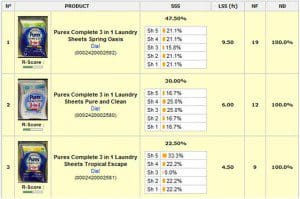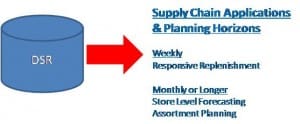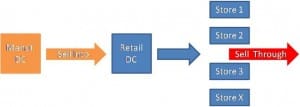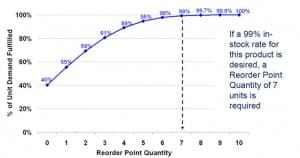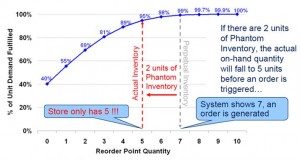I attended Oracle OpenWorld 2010 last week (Oracle is an ARC client). I always enjoy going to this conference; it provides a great opportunity to speak with very smart supply chain professionals and hear case studies of cutting-edge SCM processes.
Here are my high-level key takeaways from the conference.
- Oracle has the broadest set of supply chain applications. You expect supply chain vendors to have supply, inventory, and demand planning solutions. You expect ERP supply chain solutions to also include warehouse, production, and transportation management functionality. A few ERP companies also offer global trade management. Oracle has all of these solutions. But it also has real-time sales and operations planning (S&OP), a solution that helps orchestrate sales and operations planning; a demand signal repository (this is the future of supply chain management in the CPG and retail industries, and I’m disappointed that other leading software vendors have not made a commitment to DSR); a very interesting scenario planning application called “Advanced Planning Command Center” (you can’t do justice to this application with a written explanation; you need to see it demonstrated); and Oracle has just introduced a distributed order management solution called “Distributed Order Orchestration.”
- The breadth of Oracle’s solution stack is based on complementary solutions and technologies. I’ve long been a believer that you can’t do good planning without clean data. Master data management (MDM) solutions help ensure clean data, and product information management (PIM) is perhaps the key MDM solution that supports supply chain management. Further, the sales and operations planning and strategic and annual business planning processes are starting to merge. Oracle’s Hyperion financial planning solutions are beginning to show up in supply chain implementations. I attended a case study presentation by a spirits company that implemented the Hyperion solution. Now, as part of its S&OP process, the company has much better numbers when it examines the profitability of its different business units and customers. This is because supply chain planning solutions rely on margins in their optimization runs. The Hyperion solution allows the spirits company to roll in more accurate intercompany transfer pricing and promotional dollar spends on various brands to produce scorecards that are much more accurate.
- Even though Oracle is an enterprise applications company, many of its applications are among the most functionally rich in the industry. The Demantra applications (demand management and predictive sales trade planning) are particularly noteworthy in this respect.
- Inspirage is emerging as key consulting and implementation partner for Oracle in the supply chain planning area. A few years ago, I studied boutique supply chain consulting firms and produced a report titled “The 10 Coolest Boutique Supply Chain Consulting Firms.” If I were to do that study today, Inspirage would certainly make the list.
No vendor is perfect, and not all of Oracle’s applications, particularly at the execution level, have best-of-breed functionality. And some of its customers grumble about maintenance costs. Nevertheless, Oracle is among the most visionary and noteworthy of the supply chain solution providers.
















